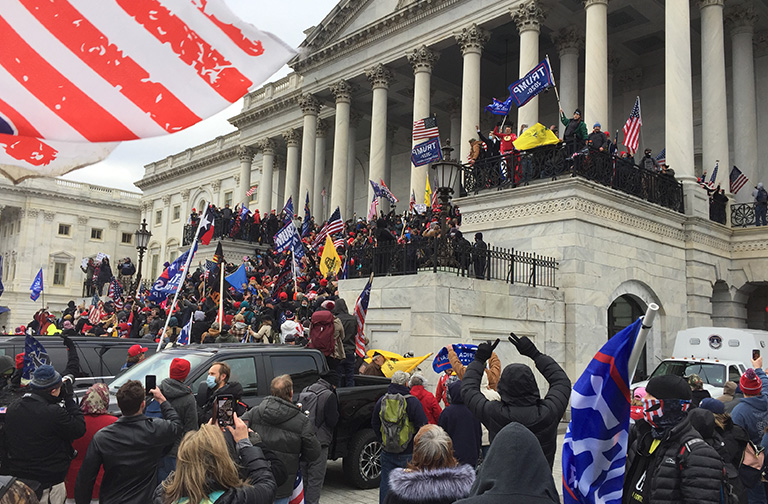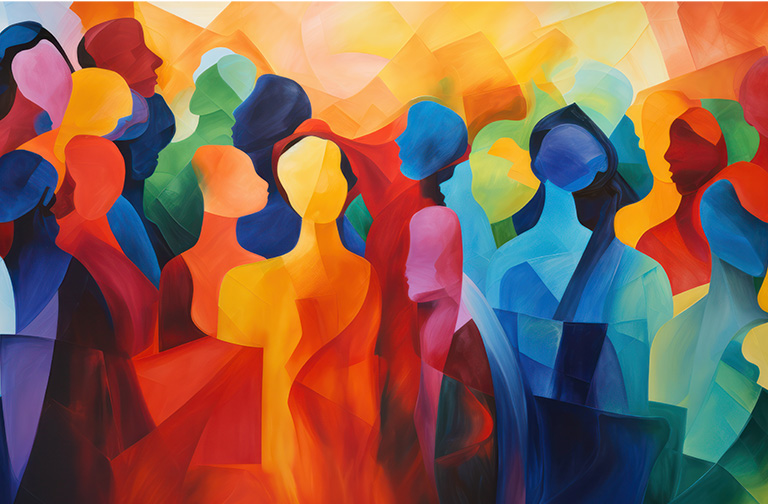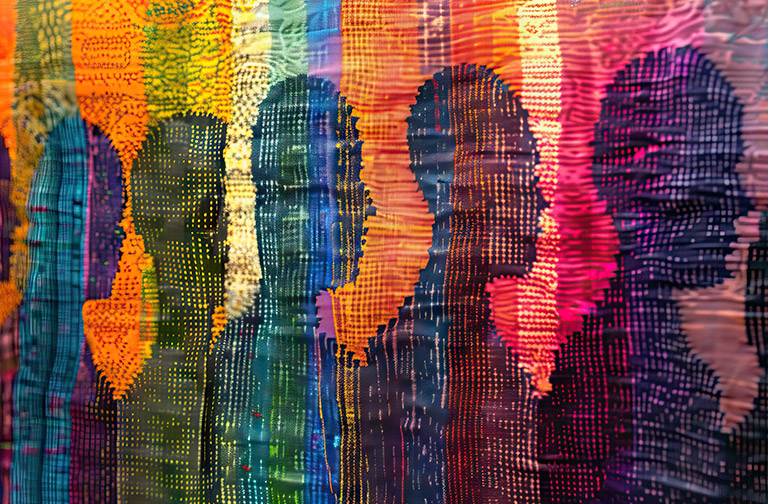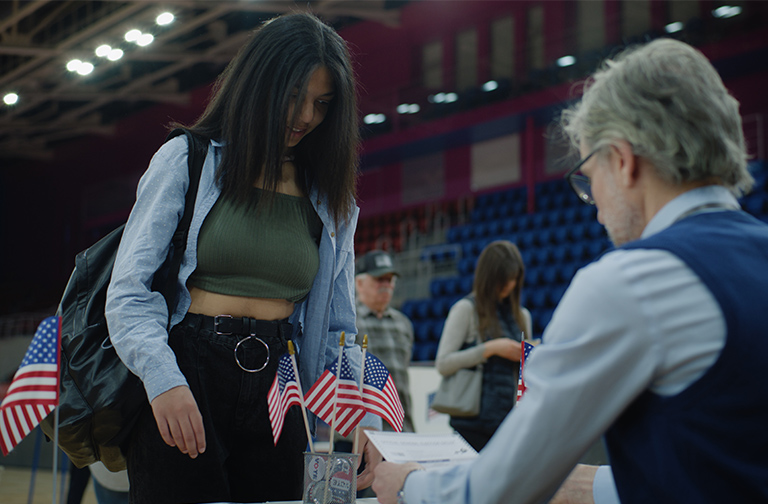Deep Dive: Surviving Political Polarization

Nearly half of the world’s human population has the right to vote in 2024 – a testament to the spread of democracies in just the last couple of centuries and the progress marginalized groups within democratic nations have made in just the last couple of centuries. And yet surveys across many countries show that political polarization – the divergence of political attitudes away from the center and toward ideological extremes – is on the rise.
When polarization becomes toxic it often leads to political violence and greatly hampers the ability of societies to address critical issues. Worsening environmental and social crises like climate change, resource constraints, and economic inequality can both exacerbate political polarization and literally make the stakes a life or death proposition.
This Deep Dive will:
- Explore why societies become polarized, unpack the dangers of polarization and the ways it tears societies apart, and trace the causes and history of polarization in the U.S.
- Address common drivers and dynamics of polarization across the globe, and ways that “political entrepreneurs” feed or combat toxic polarization.
- Highlight concrete examples of community and society-wide approaches to reverse the spread of polarization and create meaningful dialogue, engagement, and collaboration across differences.
- Provide opportunities to share and learn from peers also concerned with how to survive, if not reverse, polarization in our own communities
- Share a set of curated resources for further study and to take meaningful action in your own life.
Image via Unsplash
Included Events
Discussion: How to Overcome Polarization in Your Own Community
Othering and Political Conflict in the Great Unraveling
Included Content
“Healing A Polarized World”: Jennifer McCoy On Creating Unity From Division
Global trends are polarizing us: Can democracy handle it?
One Community’s Inspired Response to Toxic Polarization: An Interview with Nichole Argo
Surviving Political Polarization: Curated List of Resources
Related Content
Us vs. them: Understanding the roots of political polarization and what you can do about it
Democracy at the Crossroads: An Interview with David Stasavage on Polarization
Breaking the Two-Party Doom Loop
Deep Dive: Surviving Political Polarization
Original price was: $50.00.$25.00Current price is: $25.00.
Description
Nearly half of the world’s human population has the right to vote in 2024 – a testament to the spread of democracies in just the last couple of centuries and the progress marginalized groups within democratic nations have made in just the last couple of centuries. And yet surveys across many countries show that political polarization – the divergence of political attitudes away from the center and toward ideological extremes – is on the rise.
When polarization becomes toxic it often leads to political violence and greatly hampers the ability of societies to address critical issues. Worsening environmental and social crises like climate change, resource constraints, and economic inequality can both exacerbate political polarization and literally make the stakes a life or death proposition.
This Deep Dive will:
- Explore why societies become polarized, unpack the dangers of polarization and the ways it tears societies apart, and trace the causes and history of polarization in the U.S.
- Address common drivers and dynamics of polarization across the globe, and ways that “political entrepreneurs” feed or combat toxic polarization.
- Highlight concrete examples of community and society-wide approaches to reverse the spread of polarization and create meaningful dialogue, engagement, and collaboration across differences.
- Provide opportunities to share and learn from peers also concerned with how to survive, if not reverse, polarization in our own communities
- Share a set of curated resources for further study and to take meaningful action in your own life.
Image via Unsplash









